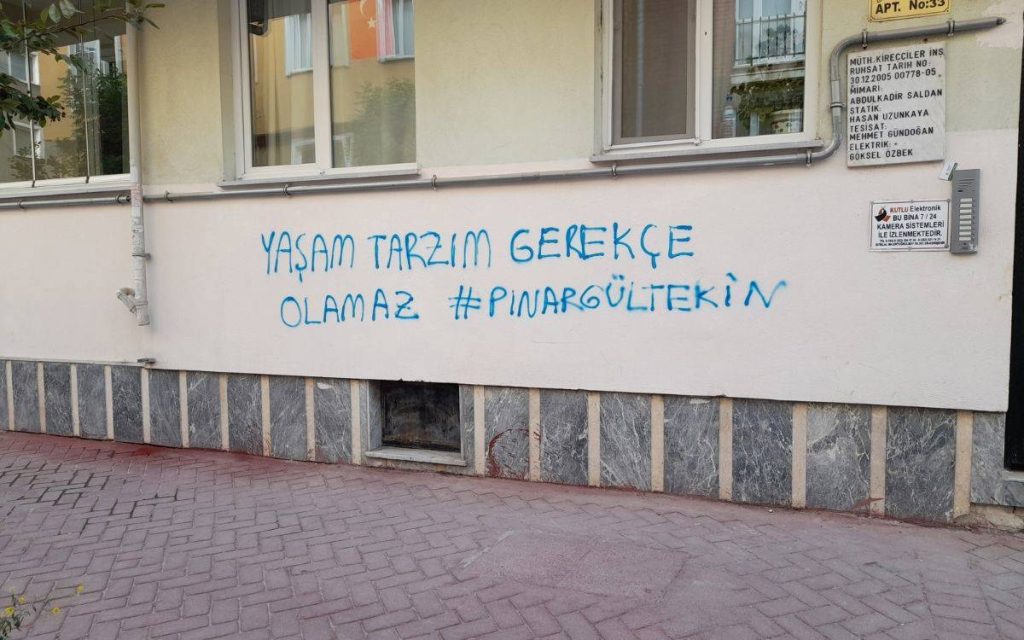The Court of Cassation has upheld a controversial ruling that reduced the sentence of Cemal Metin Avcı, convicted of murdering university student Pınar Gültekin, in a case that has ignited widespread outrage. Initially sentenced to an aggravated life term, Avcı’s sentence was cut by a prior court ruling citing provocation, despite objections from public prosecutors. The recent decision from the Court of Cassation further cements a legal precedent viewed by many activists and legal experts as unjust, prompting calls for reevaluation of the justice system concerning violence against women.
| Article Subheadings |
|---|
| 1) Court’s Reversal of Sentence |
| 2) Legal Reactions and Criticism |
| 3) Case Background and Context |
| 4) The Role of Public Opinion |
| 5) Implications for Future Cases |
Court’s Reversal of Sentence
The Court of Cassation’s recent decision to uphold a sentence reduction for Cemal Metin Avcı has drawn significant attention. Originally sentenced to an aggravated life term for the brutal murder of Pınar Gültekin, the court earlier annulled this sentence, citing the concept of “provocation” as a mitigating factor. In a split decision, the 1st Criminal Chamber of the Court of Cassation determined there was no error in its previous ruling. This reversal means that Avcı will benefit from reduced sentencing due to purported unjust provocation, a development viewed by many as a blessing for perpetrators of violence against women.
Legal Reactions and Criticism
Legal representatives for the Gültekin family have expressed strong opposition to the court’s ruling. Rezan Epözdemir, one of the family’s lawyers, publicly condemned the decision, dubbing it a “legal monstrosity.” She pointed to forensic evidence indicating that Pınar Gültekin was burned alive, arguing that the court’s assertion of Avcı lacking “monstrous intent” undermines the severity of the crime. Legal analysts argue that this decision sends a troubling message about the judiciary’s stance on gender-based violence. The minority dissenting opinion during the ruling, submitted by previous members of the court, emphasized the gravity of the crime and questioned the application of provocation as a defense.
Case Background and Context
The horrifying case dates back to July 2020, when Pınar Gültekin, a 27-year-old university student, was murdered in Muğla. Following her death, Cemal Metin Avcı was charged with strangulation, after which he concealed her body in a barrel, set it on fire, and poured concrete over it to obscure evidence. The initial trial saw prosecutors advocating for an aggravated life sentence, but the court controversially opted for a lesser sentence citing provocation. This decision was met with immediate public outcry, as advocates for women’s rights deemed it a failure of the legal system. When the İzmir Regional Court of Justice later reinstated the aggravated life sentence, it appeared that justice might be served; however, the Court of Cassation’s latest ruling has reversed that hope.
The Role of Public Opinion
Public sentiment surrounding this case remains fervent and continues to evolve. Since the original murder, there have been widespread protests and significant media coverage that have highlighted ongoing issues of femicide and violence against women in the region. Advocacy groups have united, demanding changes in laws that would prevent similar reductions in sentencing for perpetrators of violence against women. The ruling has sparked debates on social media, with many expressing outrage and calling for accountability within the justice system. The case has served as a focal point for discussions about the treatment of women in society and the pervasive nature of gender-based violence.
Implications for Future Cases
The implications of this ruling extend beyond the immediate case of Pınar Gültekin. Many fear it sets a dangerous precedent for future legal proceedings involving similar crimes. Activists contend that such decisions can embolden perpetrators, knowing they may evade strict penalties through claims of provocation. The case also raises questions about the systemic issues within the justice system, including how judges interpret laws concerning gender violence. Legal experts argue that this ruling could influence the outcomes of other cases, particularly those involving female victims. As advocacy for women’s rights gains momentum, the need for reforms in how courts handle cases of femicide and violence against women is becoming increasingly urgent.
| No. | Key Points |
|---|---|
| 1 | The Court of Cassation upheld a controversial ruling reducing the sentence of Cemal Metin Avcı in the murder case of Pınar Gültekin. |
| 2 | Legal representatives of the Gültekin family have criticized the ruling, calling it unjust and devoid of conscience. |
| 3 | The case has triggered widespread public outrage and protests regarding violence against women in the region. |
| 4 | Concerns are mounting that the ruling could set a dangerous precedent for how similar cases are handled in the future. |
| 5 | Activists demand reforms to prevent future reductions of sentences for perpetrators of gender-based violence. |
Summary
The ruling by the Court of Cassation to uphold a reduced sentence for Cemal Metin Avcı illustrates the ongoing challenges within the legal system regarding the treatment of gender-based violence. Despite national outrage and active advocacy for women’s rights, this case highlights systemic issues and calls for significant legal reforms. As attention remains focused on the implications of this decision, it underscores the need for a societal shift in how authorities address and penalize violence against women.
Frequently Asked Questions
Question: What was the initial sentence for Cemal Metin Avcı?
Cemal Metin Avcı was initially sentenced to an aggravated life term for the brutal murder of Pınar Gültekin.
Question: Why was Avcı’s sentence reduced?
His sentence was reduced due to the court citing “provocation,” which many critics argue undermines the severity of his crime.
Question: What has been the public reaction to the ruling?
The public has expressed significant outrage, leading to protests and calls for reforms in how the justice system addresses violence against women.
